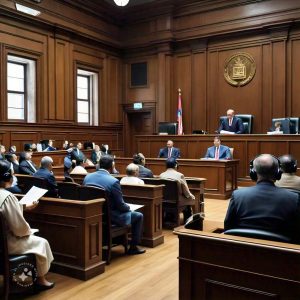Introduction
The Importance of Language in Identity
Language Rights for Minority Groups that not only allows for communication but also shapes identity, culture, and community. For minority groups, preserving their native language is crucial to maintaining their heritage, expressing cultural identity, and ensuring equal access to social, educational, and political resources. However, linguistic minorities across the globe often face challenges in asserting their language rights, making this an issue of justice, equality, and human dignity.
Understanding Language Rights
Language rights are a part of broader human rights and involve the ability of individuals and communities to use their language in private and public spheres without discrimination. They encompass various aspects, including the right to education in one’s mother tongue, access to media, and participation in legal and governmental systems in their native language.
1. Legal Frameworks and International Protections
The recognition of language rights for minority groups is embedded in numerous international declarations and conventions. The Universal Declaration of Human Rights (UDHR), for instance, highlights the right to freedom of expression, which implicitly includes the right to use one’s language. Similarly, the European Charter for Regional or Minority Languages (ECRML) specifically aims to protect and promote historical minority languages in Europe.
In countries like Canada and India, specific legal frameworks support bilingual or multilingual policies to accommodate linguistic diversity. Canada’s Official Languages Act, for instance, guarantees English and French-speaking communities equal status, while India’s constitution recognizes 22 official languages.
However, the implementation of these frameworks is not without challenges. Many minority groups remain marginalized, and their languages are often excluded from mainstream education, governance, and media.

2. Language Suppression and Its Consequences
In many parts of the world, minority languages are actively suppressed, either as part of historical colonization or national assimilation policies. Examples include the prohibition of the Kurdish language in Turkey for several decades and the forced Spanish assimilation of indigenous languages in Latin America. In these cases, language suppression often leads to the decline or extinction of minority languages, along with the loss of associated cultural knowledge and heritage.
The consequences of language suppression go beyond cultural loss. It also exacerbates inequalities in education and employment. Without access to education in their mother tongue, children from linguistic minorities often fall behind academically. They also face obstacles in accessing governmental and legal services, limiting their participation in society.
3. Language Revitalization Efforts
Fortunately, many communities and governments are taking steps to revitalize and preserve minority languages. In some cases, this involves the implementation of bilingual education programs, where students are taught both in the dominant language and their native language. For example, New Zealand has been successful in revitalizing the Māori language through comprehensive educational programs and media initiatives.
In other cases, cultural and linguistic preservation efforts involve technology. Online platforms, mobile applications, and digital archives are being used to document and teach endangered languages. Communities are increasingly using social media to raise awareness and pass on linguistic traditions to younger generations.
4. The Role of Government and Policy
Governments play a pivotal role in protecting and promoting minority languages. The enactment of policies that recognize minority languages, allocate resources for their promotion, and include them in education, legal, and governmental systems is essential. Countries like Finland and South Africa have implemented multilingual policies that allow linguistic minorities to have access to services in their native language.
In Finland, for instance, the Sámi people have the right to use their language in administrative and legal matters. Similarly, South Africa recognizes 11 official languages, ensuring that minority languages such as Zulu and Xhosa are given space in national discourse.
However, even in countries with such policies, challenges remain. Political will, funding, and logistical issues often hinder the full implementation of language rights.
5. Language Rights in the Digital Age
In today’s digital era, language rights extend into the realm of technology. With the advent of the internet and social media, language communities can connect, share, and document their linguistic traditions more easily. However, many minority languages face digital exclusion due to the dominance of major languages such as English and Chinese online.
Digital localization—the process of adapting digital content into multiple languages—plays a critical role in ensuring that minority groups are not left behind. Large tech companies are now recognizing the importance of language diversity, with platforms like Facebook, Google, and Microsoft offering services in hundreds of languages.
Still, more needs to be done to close the digital divide. Governments, tech companies, and non-profit organizations must work together to create digital resources in minority languages and ensure that they are accessible to all.
Conclusion
The Future of Language Rights
Language rights for minority groups are not just about protecting a means of communication; they are about ensuring that cultural identity, heritage, and equality are preserved for future generations. The global community must continue to support policies, education, and digital inclusivity efforts that safeguard these rights.
As we move forward, the recognition and promotion of linguistic diversity will be crucial in building a more inclusive and equitable world. While progress has been made, there is still much work to be done to ensure that minority groups can enjoy the full spectrum of language rights without discrimination or exclusion.



